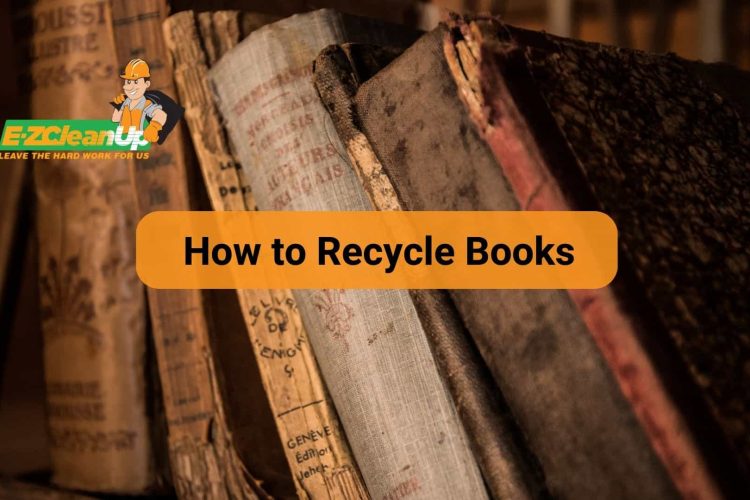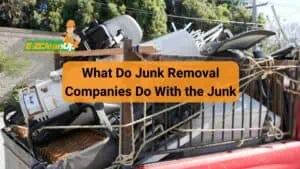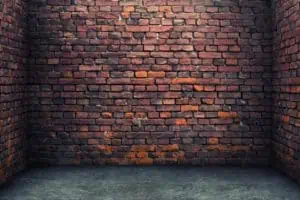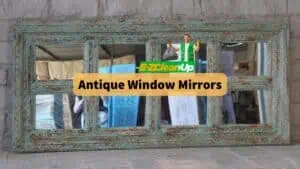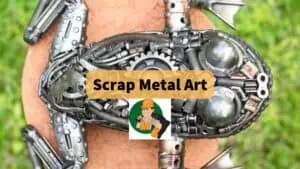Book recycling involves several key steps. It begins with sorting books for recyclability, removing non-recyclable components like hardcovers or plastic coatings, and then processing the paper for reuse. The recycled paper is then transformed into new paper products, which reduces the need for virgin materials.
Learn more about how to recycle books below.
Top Options for Book Recycling
Here are the most common options you have when thinking about recycling books:
Curbside Recycling Programs
Most curbside recycling programs accept books, including paperbacks and magazines. Paperbacks can be added directly to your regular paper recycling bin without any need for alteration.
Magazines are also recyclable, but remember to remove any plastic sleeves before adding them to paper recycling. It’s important to check with your local recycling program for specific guidelines, which can vary by location.
Drop-off Recycling Centers
When books can’t be resold or donated, drop-off recycling centers are a viable option. Textbooks, magazines, hardcovers, and paperbacks can be delivered to these centers.
Companies like Books4Paper and United States Recycling, Inc. specialize in transforming unusable books back into paper or other recycled products. These centers often accept a wide variety of paper products, including damaged or old books.
Mail-in Recycling Options
Mail-in recycling is an alternative for books that are not in the best condition or are quite old. Books in this category are considered “mixed paper” in the recycling world. Most U.S. paper mills will recycle old textbooks, hardcovers, and softcovers. Removing the covers of hardcover books before recycling is advisable, as they may contain non-paper elements.
After removing the binding, these books can be added to your curbside recycling bin. It’s crucial to note that books that have gotten wet or moldy or are particularly aged with brown or tan pages should be disposed of as they cannot be recycled. Various online platforms provide services for recycling these types of books.
Alternative Uses for Old Books
Here’s a look at the other ways you can repurpose your old books:
Upcycling
Old books offer a wealth of possibilities for creative upcycling. Here are some ideas:
- DIY Knife Block: One innovative idea is transforming them into practical items like a DIY knife block, where books are tied together to store kitchen knives.
- Hidden Storage Box: You can do this DIY idea using glue, a sharp knife, and a simple box frame.
- Planters: For those with a green thumb, turning books into unique planters adds a literary charm to your mini garden.
- Other DIY Projects: Other creative projects include making bookmarks from book covers, crafting breathtaking book wreaths, and creating an artichoke pendant light from book pages.
These projects not only give old books a new life but also add a personalized touch to your home decor.
Donating to Libraries and Charities
Donating books to libraries and charities is a fulfilling way to repurpose them. Various organizations accept used book donations and use the proceeds to support literacy programs. Organizations like Books for Kids and Bridge of Books Foundation work to create print-rich environments and support literacy development for children in need.
Reader to Reader Inc. is another charity that donates books to under-resourced libraries across the U.S. Additionally, Vietnam Veterans of America accepts used books and aims to make a difference in the lives of veterans and their families.
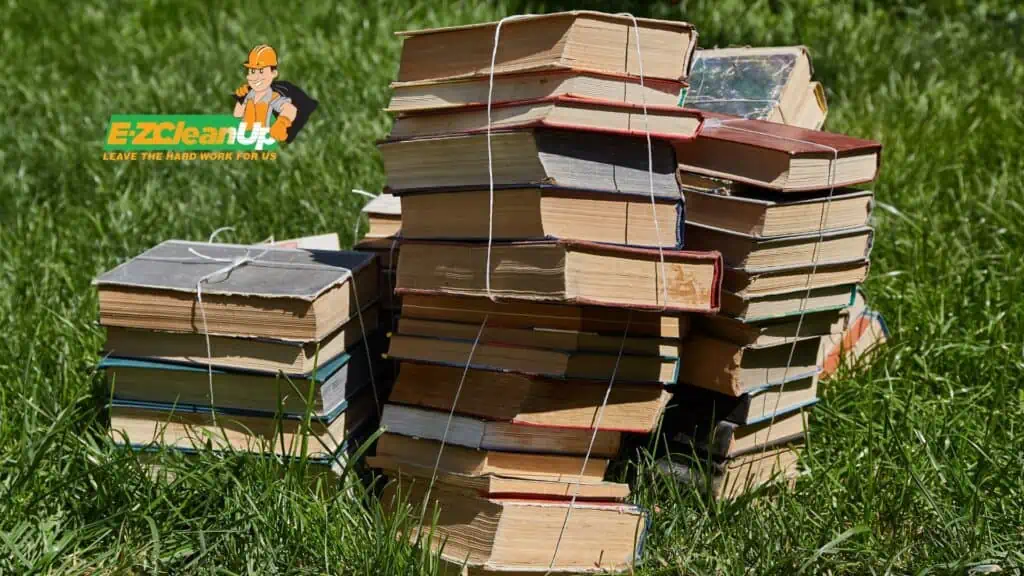
Selling or Trading Used Books
In today’s digital age, selling or trading used books has become more accessible. Platforms like Amazon offer an avenue for selling used books, allowing individual or professional sellers to reach a wide audience.
There are two fulfillment options: Fulfillment by Seller (FBS), where you manage the inventory, packing, and shipping, and Fulfillment by Amazon (FBA), where Amazon handles these processes. The fees for selling on Amazon vary depending on the selling plan and method used.
Additionally, local options for selling books include Half Price Books, Facebook Marketplace, garage sales, and used bookstores, offering various ways to make cash from used books.
Importance of Recycling Books
Recycling books is crucial for several reasons. Firstly, it directly impacts the reduction of deforestation. The production of new books requires a substantial amount of virgin paper, which leads to the cutting down of trees.
Recycling a ton of paper can save about 17 thirty-foot tall trees. With 640,000 tons of paper waste generated annually from discarded books, the potential for saving trees is immense.
Additionally, recycling books conserves energy. Recycling books takes less energy than producing new ones from virgin paper, which involves extensive processes like tree cutting, transportation, and production. Recycling 1,700 average paperback books can save up to 4,000 kilowatts of energy.
Environmental Impact of Book Waste
The environmental impact of book waste is significant. In the U.S. alone, the publishing industry uses around 32 million trees yearly to produce books, contributing to deforestation and habitat destruction.
The book production process also emits over 40 million metric tons of CO2 globally, which makes it the third-largest industrial greenhouse gas emitter in the pulp and paper sector.
Furthermore, unused and unread books create waste. Each year, more than 16,000 truckloads of unread books are discarded, which contributes to landfill waste and environmental degradation.
Additionally, the overall production process, including the operation of publishing company facilities and the transportation of materials, adds to the carbon footprint and resource depletion.
Preparation for Recycling
Here are the steps to do when you want to recycle books:
Sorting Books for Recycling
The first step in recycling books is identifying which ones are no longer needed or desired. This process involves assessing your collection and determining which books are ready to be recycled, donated, or given a new purpose.
It’s important to remember that not all books are suitable for traditional recycling due to the glue used in bookbinding, which poses challenges in the recycling process.
Removing Non-recyclable Components
To effectively recycle a book, it’s crucial to remove non-recyclable components. This primarily includes the covers and bindings of hardcover books, as the adhesive used to bind pages to the cover is often not recyclable.
The rigid covers, typically made of untreated paperboard, are recyclable, as are the pages within. Therefore, separating these components is essential for proper recycling.
Cleaning and Maintenance Tips
Before recycling, books should be clean and free of non-paper elements such as bookmarks, sticky notes, or plastic covers. If a book is in good condition but no longer needed, consider donating it.
Charities, libraries, schools, and local thrift stores often accept book donations. Additionally, local recycling centers might accept books that are not in the best condition for mixed paper recycling. However, checking if they accept hardcover books is important, as some centers may only process softcover ones.
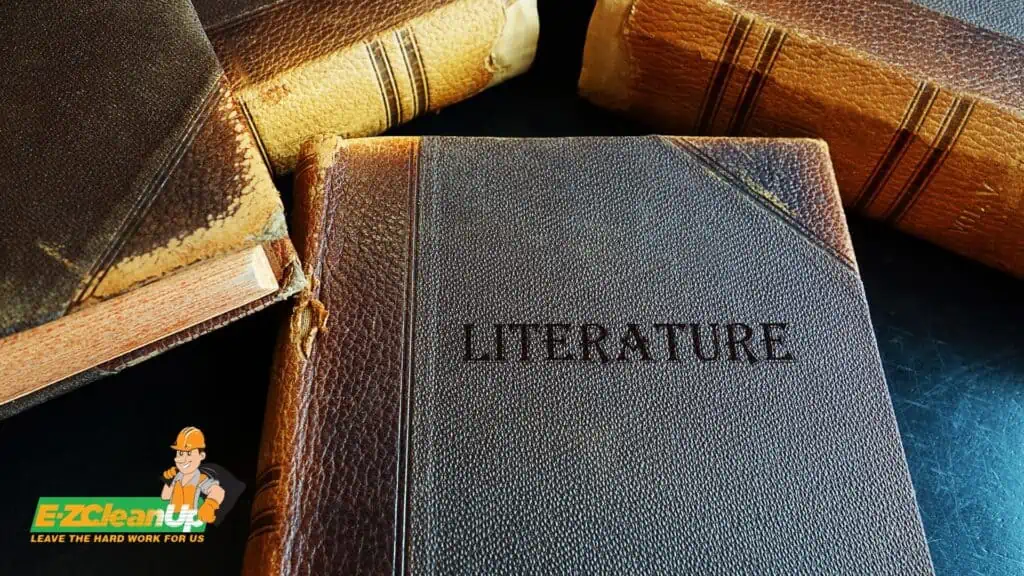
Challenges in Book Recycling
Recycling hardcover books poses unique challenges compared to paperbacks. The main difficulty lies in their hardcovers, which cannot always be recycled in the same manner as the book’s pages. These covers often contain non-recyclable materials, such as certain adhesives and binding agents.
To properly recycle hardcover books, it’s essential to remove their covers first. This process requires careful handling to ensure that only the recyclable parts of the book are processed.
Dealing with Damaged or Moldy Books
Books that are damaged, wet, or moldy present another significant challenge in recycling. These books are generally not accepted in the recycling market due to contamination and the degradation of the paper quality.
Particularly, aged books with brown or tan pages also fall into this category and cannot be recycled. In these cases, the best course of action is to dispose of these books, either by throwing them away or, in certain cases, burning them, as they have no recycling value.
Limitations of Recycling Facilities
The recycling of books is more complex than recycling purely paper items because of the variety of materials used in their construction. Books contain not only paper but also adhesives and other materials in their bindings or covers, which makes the recycling process more complicated.
Additionally, not all towns and cities accept books for recycling. In areas where local facilities do not accept books, individuals may need to seek out specific recycling centers or directories like Green Citizen’s Green Directory, which lists facilities that accept books for recycling.
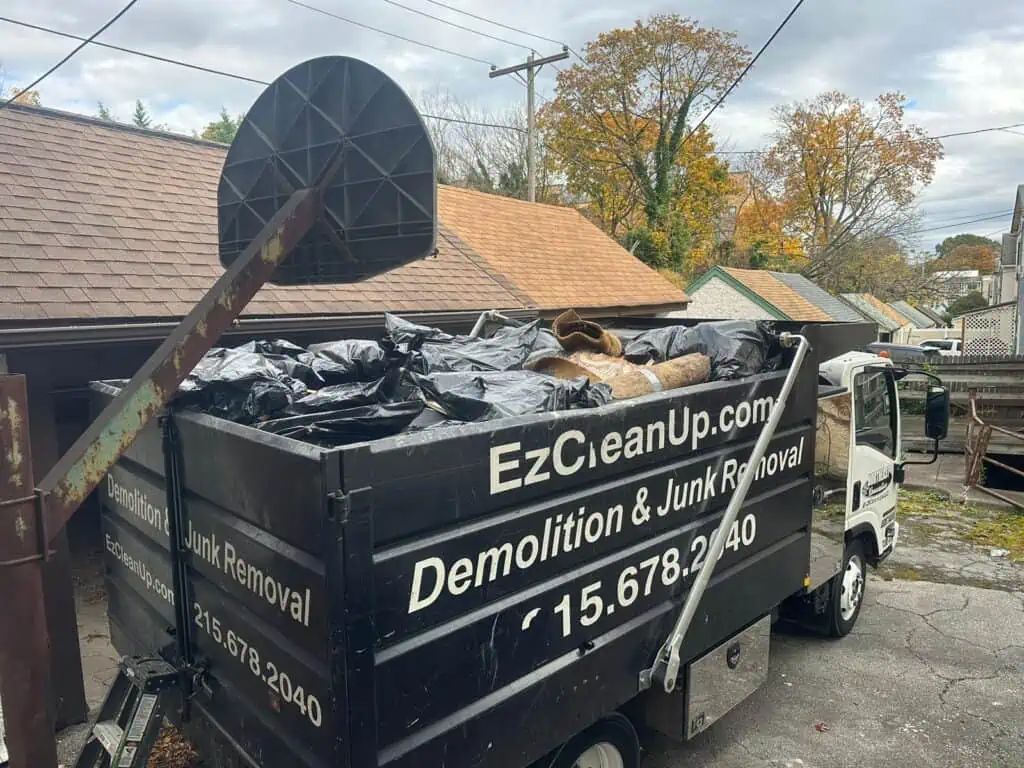
Effortless Junk Recycling with EZ CleanUp
If you have done a big cleanup and clearing up of your space and you want to dispose of your junk, including old books, immediately, you may want to hire the services of a junk removal company. If you’re in Philadelphia or neighboring counties, EZ CleanUp is your go-to service.
We’re a local, eco-conscious junk removal company committed to sustainable practices. Our team ensures that your books and other recyclable junk are recycled or donated, aligning with our goal of environmental care.
Offering prompt, professional service, we cater to your schedule, even providing same-day removal if needed. Our transparent, affordable pricing means no surprises, just efficient service. And if your books and other junk, including old mattresses, wood, and more, still hold value, we can recycle or resell them, crediting any proceeds back to you.
Choose EZ CleanUp for a hassle-free, eco-friendly solution to junk disposal and recycling. We’re here to help you declutter sustainably and efficiently. Contact us today for a free, no-obligation quote.

